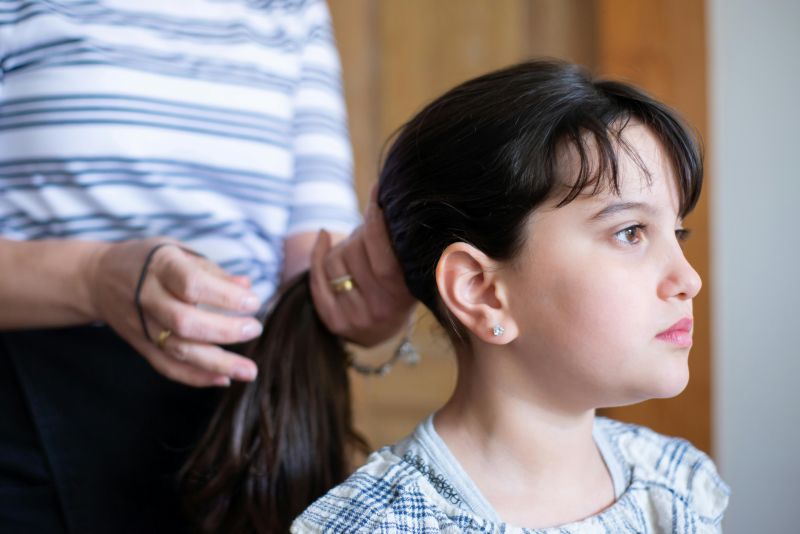If you’ve noticed your best friend’s hair looking fuller during pregnancy or heard a cousin swear by prenatal vitamins for their long, shiny locks, you’re not alone. There’s a growing curiosity about whether these supplements really help with hair growth—even if you’re not expecting.
Let’s break down the facts in simple terms. Do prenatal vitamins promote hair growth? Can they really give you thicker, healthier hair? Or is this just another beauty myth?
In this article, we’ll talk about what prenatal vitamins do, what the research says, and what real people are saying online. We’ll also explore if taking them when you’re not pregnant is a good idea or a potential risk.

What Are Prenatal Vitamins And Why Do People Take Them?
Prenatal vitamins are specially made to support the nutritional needs of pregnant people. They’re packed with key nutrients like folic acid, iron, calcium, vitamin D, and biotin—nutrients that help support a growing baby’s development.
What’s interesting is that many of these nutrients also support healthy hair, skin, and nails. This is why some people—especially those who are not pregnant—turn to prenatal vitamins as a beauty trick.
Biotin: The Hair Hero?
One of the most talked-about ingredients in prenatal vitamins is biotin (vitamin B7). It plays a role in converting food into energy and also helps maintain healthy hair. While a deficiency in biotin can lead to thinning hair, taking extra biotin doesn’t always mean your hair will grow faster.
Still, many people claim that their hair got thicker while taking prenatal vitamins. Could it be the extra biotin? Maybe. But it could also be the iron or folic acid that’s doing the heavy lifting, especially if someone was low on those nutrients to begin with.
“I started taking prenatals for hair growth, not pregnancy. Three months in, my ponytail feels fuller!” — u/hairjourneyqueen on Reddit
This kind of anecdotal evidence shows that do prenatal vitamins help hair growth is a question worth exploring—but we need more science to confirm how effective they truly are for this specific use.
Do Prenatal Vitamins Help Hair Growth If You’re Not Pregnant?
This is where things get interesting. Yes, people who aren’t pregnant take prenatal vitamins for their potential beauty perks. But should they?
When you look at the nutrient list—especially biotin, iron, and folic acid—it makes sense why people think they may help. These nutrients support:
- Healthy hair follicles
- Oxygen delivery to scalp (via iron)
- Cell regeneration (via folate)
However, taking Do prenatal vitamins promote hair growth. Too much iron, for example, can upset your stomach or even cause long-term health problems. So, while do prenatal vitamins increase hair growth may be a popular Google search, it’s important to remember these vitamins weren’t made with non-pregnant people in mind.
Think of it like this: Just because your friend’s prescription helped their skin doesn’t mean it’s right for you. Always talk to a healthcare provider before taking supplements, especially those meant for a specific condition like pregnancy.
Do Prenatal Vitamins Stimulate Hair Growth Faster Than Regular Supplements?
Not necessarily. The idea that prenatal vitamins are stronger or more effective than regular multivitamins is common, but not always accurate.
In fact, most people can get similar benefits from a balanced diet and a regular multivitamin tailored to their needs. If you’re eating well and not deficient in iron, biotin, or folate, you might not see much difference from adding prenatal vitamins to your routine.
That said, Do prenatal vitamins promote hair growth, you may see improvement. Hair growth isn’t instant—it takes time for follicles to strengthen and new hair to grow in. Most people who claim they’ve seen results report changes after 2 to 3 months of consistent use.
“It took about 10 weeks, but my hairline started filling in. I wasn’t even pregnant—just iron deficient,” said Maria, a 28-year-old from Chicago.
So yes, do prenatal vitamins help hair growth Reddit users often say they do. But it might be due to fixing a nutrient gap rather than some magical hair-growing property of the vitamins themselves.

What Doctors And Experts Really Say About It
Medical professionals usually agree on one thing: supplements can help with hair growth only if your hair loss is related to a deficiency.
According to the Wikipedia page on prenatal vitamins, these supplements are primarily intended to prevent birth defects and support fetal development. Hair growth? That’s just a side effect in some cases, not the main goal.
Dr. Emily Grant, a dermatologist based in Atlanta, says: “If someone’s hair is thinning because of low iron or folate, prenatal vitamins can help. But if their levels are normal, they won’t do much.”
The key takeaway here? Get your nutrient levels checked before starting any supplement, including prenatals. It’s not about throwing vitamins at your hair and hoping for the best—it’s about giving your body what it truly needs.
Real People’s Stories: Does It Really Work?
We’ve all seen the glowing reviews online. On Reddit, TikTok, and YouTube, countless people share how their hair got shinier or fuller after taking prenatal vitamins. It’s easy to get swept up in the excitement.
Still, others say they noticed no change at all.
- “Took them for 4 months. My nails grew, but my hair stayed the same.” — u/simplecare123
- “They helped after I lost hair from stress. Not a miracle, but better than before.” — Anjali, 33, from Houston
This tells us that results vary. Your body might respond well if you’re lacking certain nutrients, but if you’re already well-nourished, Do prenatal vitamins promote hair growth might not apply to you personally.
It’s also worth noting that many prenatal vitamins have high doses of iron, which may not be necessary—and can even be harmful—if your body doesn’t need it. So be cautious.

FAQs
Do Prenatal Vitamins Promote Hair Growth Even If You’re Not Pregnant?
Yes, they can—especially if you were low in nutrients like iron or biotin. But they’re not made for non-pregnant people, so it’s best to talk to a doctor before starting them.
Can Prenatal Vitamins Help Hair Grow Thicker?
Possibly. If your hair is thinning due to a deficiency, the extra nutrients might help your hair grow back healthier and thicker over time.
Do Prenatal Vitamins Work Faster Than Regular Hair Supplements?
Not necessarily. Both can support hair health, but results depend on your diet, stress levels, and underlying health conditions.
Is It Safe To Take Prenatal Vitamins For Hair Growth Long-Term?
Taking them occasionally might be fine, but using them long-term without medical advice can lead to side effects, especially due to high iron content.
What’s The Difference Between Prenatal Vitamins And Hair Vitamins?
Prenatals are meant for pregnancy and fetal development. Hair vitamins usually focus on biotin, collagen, and other ingredients specifically for hair, skin, and nails.
Final Thoughts: Should You Take Prenatal Vitamins For Hair Growth?
Here’s the honest answer: it depends on your body’s needs.
If you’ve been feeling tired, losing more hair than usual, or suspect a nutrient deficiency, prenatal vitamins might help—not because they’re magic, but because they help fill in gaps. In that case, does prenatal vitamins help hair growth could be true for you.
But if your nutrition is already on point, don’t expect dramatic changes. Instead, focus on a balanced diet, regular sleep, and managing stress—all of which play a huge role in hair health.
It’s tempting to search for quick fixes when your hair isn’t behaving. But in most cases, slow and steady wins the race.
And remember, before starting any supplement—even one as common as a prenatal—talk to a healthcare provider. It’s the safest and smartest way to support your body, inside and out.

